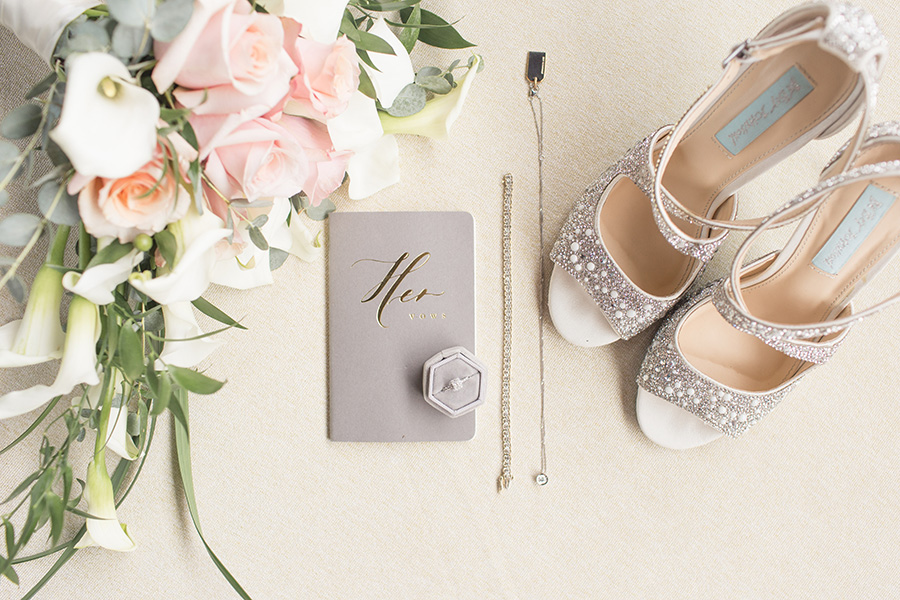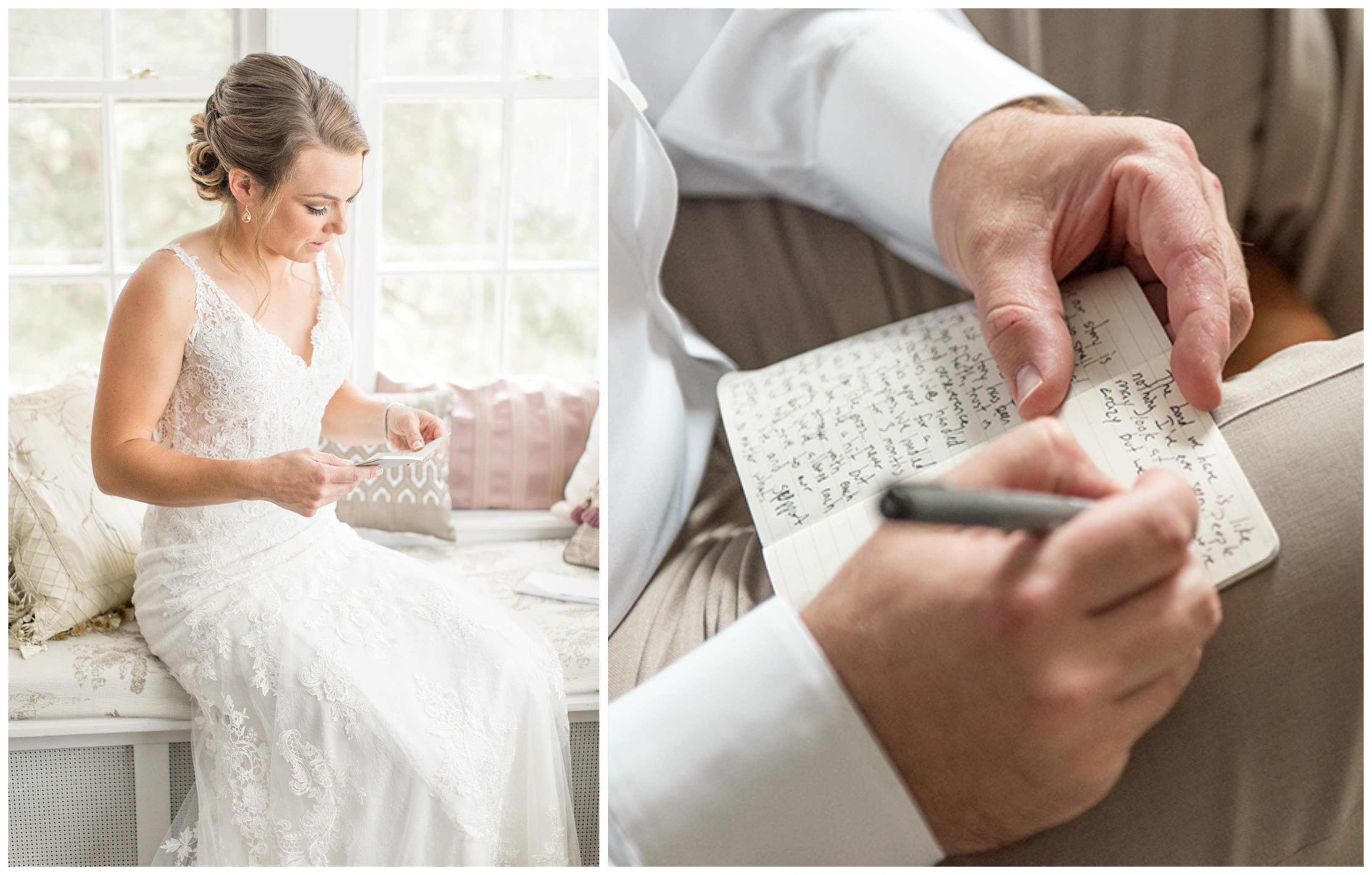
If there’s one wedding task you’re putting off until the last moment, it’s probably writing your own vows!
Handwritten vows are a faaavorite part of any wedding for me. The best of them let you get to know the couple’s love story, you laugh, you cry, you feel encouraged. Amazing. It really sets the tone for the rest of the day.
On the other hand.. vows that have been poorly thought out, are at best forgettable and at worst, down right awkward! So, with that said, here are some Do’s and Don’ts for writing your own vows!
Tips for Writing Your Own Vows
DON’Ts
1. Don’t try to be overly eloquent or flowery- speak from the heart (with note cards of course!)
2. Avoid too many inside jokes or obscure references- your guests will be lost! This also goes for intensely personal details… save it for later!
3. No rambling! Keep your vows succinct for maximum impact. About 1-3 minutes is good.
4. Reading your vows off your phone is tacky. Come on people! Just write it on a piece of paper.. or if you must, type it up and print it out.
6. No hyperbole. Do you really intend to keep your wedding vows? Let’s start by making promises we can actually keep or strive to keep. “I promise to treat you like a goddess every waking hour of our lives together!” Really? Try instead; “to work to love you better for the rest of our lives and put your needs before my own’ See? Promises you can actually keep.. or strive to!
DOs
1. Agree on a format and have an outline to follow when composing your vows. If you and your fiance are writing your vows separately, give each other a quick guideline of approx. how long your vows are going to be, and what general format they’ll follow. For example; An Intro, 6 I promise statements, and a conclusion. You can even write part of the vows together.
2. Agree on tone.. it’s gonna be pretty awkward if one of you is all ‘you are my sun moon and stars and I can’t imagine my life without you’, and the other is like.. ‘I promise to let you choose what we watch on Netflix..’
3. Work with your officiant. Even if you do decide to do traditional vows, you might be able to research marriage vows from your own faith tradition to use during your ceremony. You can also use handwritten vows in conjunction with traditional vows.
4. Once written, read through your vows out loud several times. You don’t need to memorize them, but you should get comfortable. Reading the vows out loud will give you a sense of whether or not it sounds natural and if you should edit anything.

I hope you found these tips helpful! Are you writing your own vows? I’d love to hear about it in the comment section!
Be the first to comment